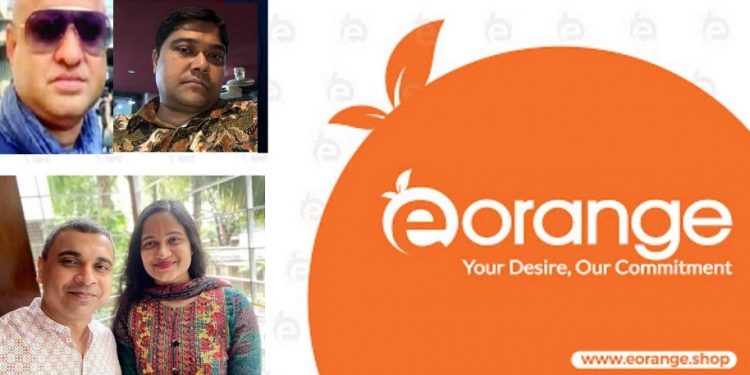A total of 35.8 billion taka (approximately $358 million) has been allegedly laundered from Bangladesh through the controversial e-commerce platform E-Orange Dot Shop. The payment gateway service SSL (Software Shop Limited) has reportedly played a key role in this scheme, motivated by the prospect of higher commissions. Following the collection of evidence, investigator Kazi Zillur Rahman Mustafa has submitted a report to the court against 12 individuals.
The allegations state that E-Orange transferred 29.46 billion taka from the Gulshan branch of BRAC Bank and 6.05 billion taka from the Gulshan branch of City Bank, totaling 90.02 billion taka. Of the remaining 5.67 billion taka, 3.45 billion taka has been seized by court order, while 2.21 billion taka has been taken as commission by SSL.
As a result, SSL’s Chairman Sabrina Islam, Managing Director Saiful Islam, and Chief External Affairs Officer Nurul Huda have been accused of facilitating money laundering for E-Orange.
The primary accused includes Sheikh Sohel Rana, a suspended police inspector from Gulshan police station involved in the business operations, along with his sister Sonia Mehjabin, her husband Masukur Rahman, Mohammad Zayedul Firoz (owner of Red Orange International, a relative), and two former Chief Operating Officers (COOs) of E-Orange, Nazmul Alam Russell and Manzur Alam Parvez. Russell was responsible for controlling E-Orange’s software and website. Sheikh Sohel Rana was apprehended while attempting to flee to India and has since been released on bail. Sonia Mehjabin and her husband, Masukur Rahman, are currently held in Kashimpur Jail in Gazipur.
Additionally, three others are implicated in the money laundering scheme: the new owner of E-Orange, Bithi Akter; the recently appointed COO Amanullah Chowdhury; and Mehdi Hasan, the owner of a firm named All Zone.
According to the investigation report, E-Orange operated from July 31, 2019, to August 17, 2021, collecting advance payments from customers. They promised to supply motorcycles, mobile phones, refrigerators, televisions, and other products at abnormally low prices through a “Double Money Voucher Offer” within 10 to 15 days. The company collected 95.7 billion taka through transactions from 315,570 customers. Many customers did not receive their products despite making advance payments, and the funds from these transactions have been identified as part of the money laundering operation.



















